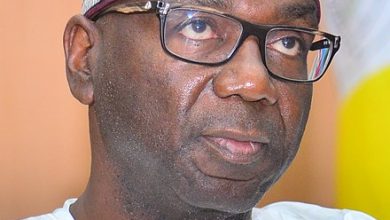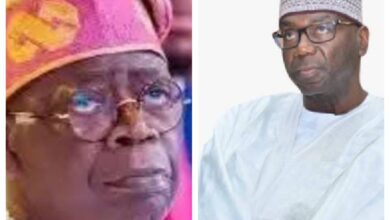2020 Budget: Our hopes and expectations

In about 20 years of return to civil rule, this will be just the fourth time that the Federal Budget was passed before the end of the outgoing year, and this is the earliest. Kudos to the federal lawmakers and the executives for working in the national interest to pass the budget expeditiously within two months. But borrowing over N2trillion to fund the 2020 budget may not augur well for the economy.
With the GDP growth rate put at 2.93% compared to 3.01% in 2019, there is reduction of about 2.66% that clearly shows the state of the economy which many analysts said needed serious turnaround. Targeted inflation rate is expected to increase from 9.98% to 10%+ from the previous fiscal year, though, Aggregate Revenue is also expected to increase by 16.50%, while Aggregate Expenditure is to rise by 15.81% compared to the previous year. So also Capital Expenditure is to rise by 2.39%.
Of the new total sum of N10,594,362,364,830, the parliament raised statutory transfers from the proposed N556.7bn to N560,470,827,235; raised debt service from N2.45tn to N2,725,498,930,000; reduced recurrent (non-debt) expenditure from N4.88tn to N4,842,974,600,640; and increased development fund for capital expenditure from N2.14tn to N2,465,418,006,955. As part of the N264bn increment, the National Assembly raised its own budget from N125bn to N128bn. Effects of
N3billion differential also can help the economy, which may increase its unemployment rate by more than 30% in the new fiscal year if nothing tangible is done quickly.
With the 2020 budget taking off from January 1, 2020, there are concerns about implementation of the fiscal and monetary Act. The first major worry is about how to fund the budget. In the years gone by, the capital component of the budget often did not record up to 50 per cent implementation due to the paucity of funds unlike the recurrent expenditure as well as the overheads which get drawn down by 100 per cent. There is going to be over N2tn budget deficit which the executive intends to borrow to finance the budget.
The National Assembly maintained Nigeria’s daily oil production rate at 2.18 million per barrel, it however, increased the Oil Benchmark Price to $57 per barrel against the $55 proposed by the Executive. The National Assembly also retained the inflation rate at 10.81 per cent and the exchange rate at N305 – $1 as proposed by the executive. It also okayed GDP Growth Rate at 2.93 per cent as proposed. While the Value Added Tax (VAT) rate is from 5% to 7.5%. There are worries and concern despite having this humongous 2016 – 2018 borrowing plan before the National Assembly (NASS), as President Mohammadu Buhari is still contemplating sending another 2020–2022 Borrowing Plan to the legislature.
Do we need borrow to finance our annual budget when there are so many funding streams open to the FG? One of which is the unremitted N20trillion Stamp Duty by the Central Bank of Nigeria (CBN), which the Senate Committee on Finance is investigating the non-remittance into the Federation Account by the CBN, an amount collected as stamp duties from Banks and Financial Institutions in the country.
In August this year, it was said in the first six months of 2019 that the nation lost about 22 million barrels of its crude oil production to oil theft. If we are able to curb this menace, funds to finance our budget with the recently signed into law Deep Offshore and Inland Basin Production Sharing Contracts Act Amendment Act will significantly bolster government revenue.
Since the border closure in August, the Nigerian Customs has been recording exponential increase in revenue generation. It thus does not make economic sense to just borrow when you can actually block leakages and have sufficient fund to run the economy.
President Buhari had on October 8, 2019 presented the budget proposal of N10.33tn tagged, ‘Budget of Sustaining Growth and Job Creation’ at the Joint Session of the National Assembly in Abuja. The Senate and the House of Representatives concurrently passed the budget raising the total estimates from the proposed N10.33tn to about N10.6tn that is N270billion more.
Between the submitted and final budget, the differential alone can do much to our unemployment within a single budget circuit as analysts were sceptical on this persisting scourge of this menase. According to statistics; our population by projection has a quarter of it unemployed.
Though, the National Assembly put a clause in the bill that the budget should run from January 1, 2020, bringing Nigeria back to a long desired January – December budget cycle. But major reasons why other national budgets had not really tackled nation’s alarming unemployment ratio need more than oversight functions from the legislature. Aside from funding, the 2020 budget faces the perennial challenge of lack of proper oversight of the implementation. If there is no proper Monitoring and Evaluation of the execution of this budget, the so-called “Budget of Sustaining Growth and Job Creation” will be a mere mirage. Yet, what Nigerians hope for in 2020 is better governance leading to significant improvement in their standard of living and not the cost of living.
Meeting our revenue projections from both oil and non-oil sectors, with the price of crude oil in the international market which may not fall below the benchmark of $57 per barrel estimate upon which the 2020 budget is premised. It is equally anticipated that the 2.18mbpd oil production supply will be met. If these two variables are not accomplished, it will cause dislocation and funding challenge for our budget. ‘Ceteris paribus’ – all things being equal, next year’s budget may be expected to perform better than this year’s only if the FG is sincere in its implementations and not just paying lip service to productive governance.




